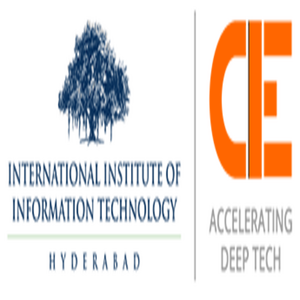 CIE at IIIT Hyderabad announced the onboarding of two start-ups Machstatz and eSkindoctor under Avishkar deep tech accelerator cohort No. 11 & OJAS MedTech Accelerator cohort No. 5. AVISHKAR deep tech is a 6-month cohort-based accelerator for emerging tech start-ups and OJAS MedTech is an accelerator for start-ups in life sciences, biotechnology, diagnostics, point of care devices for healthcare along with cutting-edge emerging technologies facilitated by CIE@IIITH.
CIE at IIIT Hyderabad announced the onboarding of two start-ups Machstatz and eSkindoctor under Avishkar deep tech accelerator cohort No. 11 & OJAS MedTech Accelerator cohort No. 5. AVISHKAR deep tech is a 6-month cohort-based accelerator for emerging tech start-ups and OJAS MedTech is an accelerator for start-ups in life sciences, biotechnology, diagnostics, point of care devices for healthcare along with cutting-edge emerging technologies facilitated by CIE@IIITH.
The accelerator brings together the deep tech expertise of IIITH's research labs and technology mentoring opportunities that help startups build quality product/features within shorter timelines. The start-ups also go through a structured strategic business mentoring from Co-Creation Consulting, customer introductions and investor connect for follow-on round of investments. Medtech start-ups also get access to medtech consortium which includes clinicians, hospitals, pharma, biotech & manufacturing companies. Investment readiness of the cohort start-ups is a key deliverable for the 6-month programme.
A number of other ecosystem partners of IIITH also contribute towards the programme with business development services and tools. Prof Ramesh Loganathan, COO of CIE-IIITH said, "Nurturing and growing early-stage tech start-ups has been our focus since we started CIE in 2008. Over the years we have had 400 start-ups in the incubator and about 20 in our Accelerator programs."
For this cohort, 7 start-ups pitched for OJAS Accelerator and 9 startups pitched for the Deep tech accelerator. The Investment Committee panel included professors, clinicians, angel investors and other ecosystem partners.
"We are very happy to onboard eSkindoctor Healthtech private Limited, focused on Dermatology and is using Artificial Intelligence and Deep Learning algorithms to address the gap in availability of doctors by improving the accuracy and efficiency in triaging skin condition," says Dr. Sonali Khanra, Head OJAS Medtech BioNEST, IIIT Hyderabad.
She adds that skin diseases pose significant threat to patients' well-being, mental health, ability to function, and social participation, a measure of disability defined broadly by the WHO. Technology interventions in early screening and diagnosis in low resource setting towards delivering high quality care are essential in improving the burden of skin diseases.